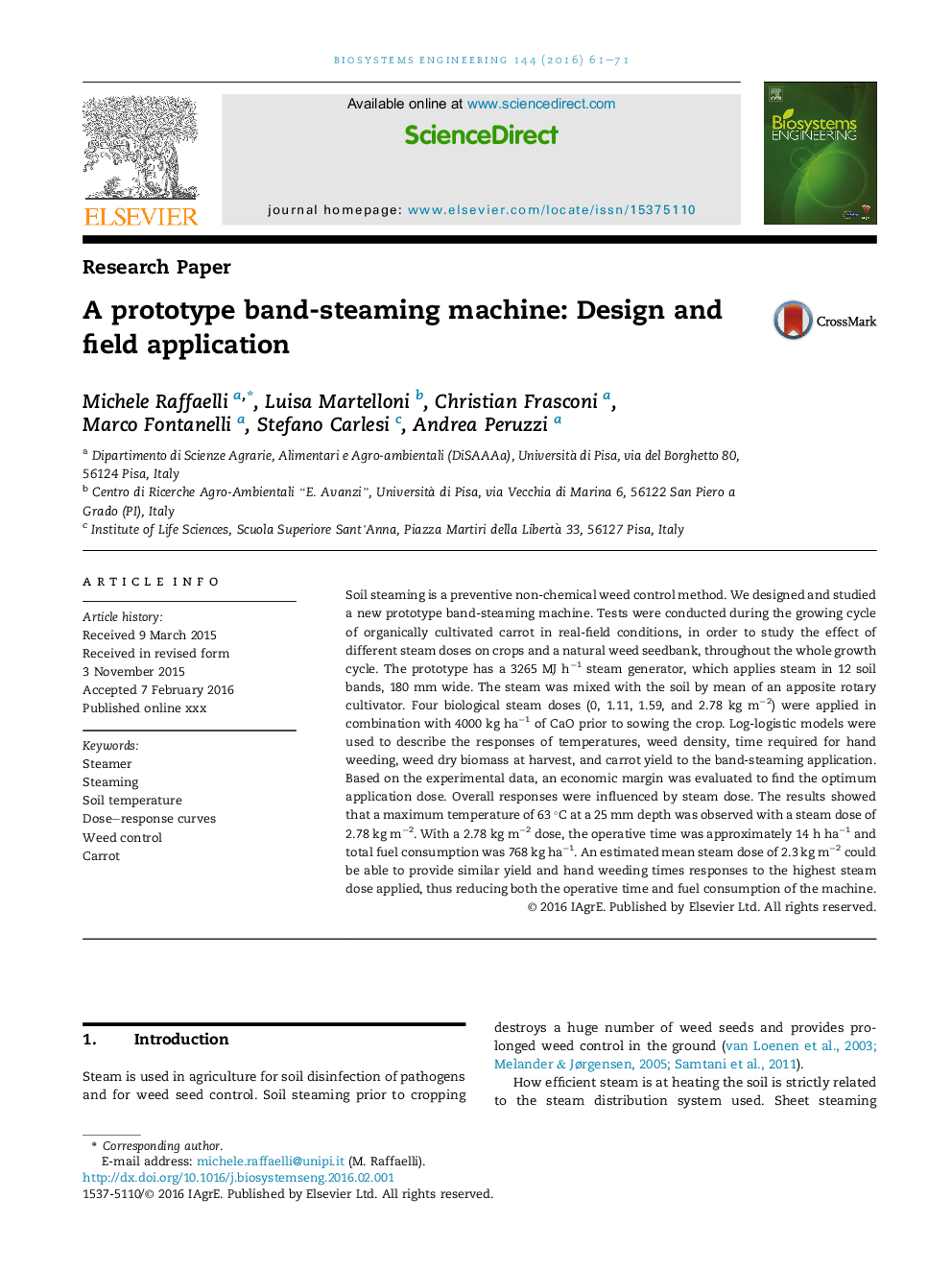| Article ID | Journal | Published Year | Pages | File Type |
|---|---|---|---|---|
| 1710852 | Biosystems Engineering | 2016 | 11 Pages |
Abstract
Soil steaming is a preventive non-chemical weed control method. We designed and studied a new prototype band-steaming machine. Tests were conducted during the growing cycle of organically cultivated carrot in real-field conditions, in order to study the effect of different steam doses on crops and a natural weed seedbank, throughout the whole growth cycle. The prototype has a 3265 MJ hâ1 steam generator, which applies steam in 12 soil bands, 180 mm wide. The steam was mixed with the soil by mean of an apposite rotary cultivator. Four biological steam doses (0, 1.11, 1.59, and 2.78 kg mâ2) were applied in combination with 4000 kg haâ1 of CaO prior to sowing the crop. Log-logistic models were used to describe the responses of temperatures, weed density, time required for hand weeding, weed dry biomass at harvest, and carrot yield to the band-steaming application. Based on the experimental data, an economic margin was evaluated to find the optimum application dose. Overall responses were influenced by steam dose. The results showed that a maximum temperature of 63 °C at a 25 mm depth was observed with a steam dose of 2.78 kg mâ2. With a 2.78 kg mâ2 dose, the operative time was approximately 14 h haâ1 and total fuel consumption was 768 kg haâ1. An estimated mean steam dose of 2.3 kg mâ2 could be able to provide similar yield and hand weeding times responses to the highest steam dose applied, thus reducing both the operative time and fuel consumption of the machine.
Related Topics
Physical Sciences and Engineering
Engineering
Control and Systems Engineering
Authors
Michele Raffaelli, Luisa Martelloni, Christian Frasconi, Marco Fontanelli, Stefano Carlesi, Andrea Peruzzi,
